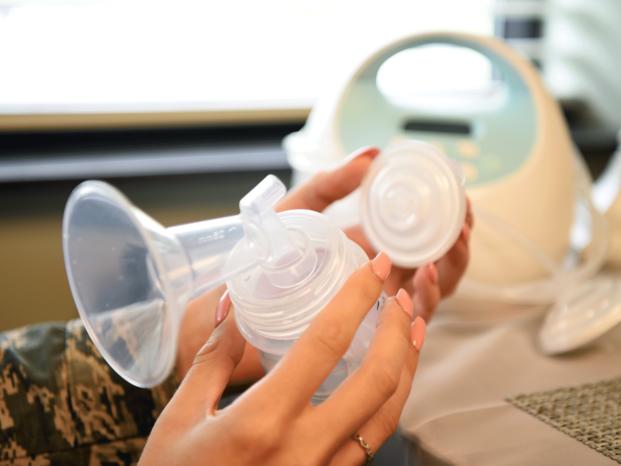For the first time ever, Tricare is covering the purchase of human breast milk from an accredited milk bank, according to a policy update released Monday.
The new coverage, which is retroactive to Jan. 1, could save mothers of premature or sick infants thousands of dollars if their baby requires breastmilk but they are unable to provide it.
Infants can be fed donated human breast milk if they are born with a variety of health conditions or if the mother is unable to provide it because of her health or absence.
But the out-of-pocket cost to do so can be staggering. Breast milk purchased without insurance coverage can cost up to $5 an ounce -- or up to $150 a day for an infant at the peak of consumption, according to the International Lactation Consultant Association. Although milk banks run by the Human Milk Banking Association of North America (HMBANA) are non-profit and the milk they supply is provided to them by donation, the milk requires extensive screening and testing to make sure it's safe.
Tricare's new policy, however, lightens the cost load, providing human breast milk received from HMBANA banks at little or no cost to beneficiaries.
Under the new policy, active duty family members on Tricare Prime will have no cost share for the milk, while those on Tricare Select will pay between 10 and 20 percent, depending on their category and whether a Tricare authorized provider made the order. Retirees will pay a 20 to 25 percent share, again dependent on category and provider. Those on Tricare Reserve Select will pay between 10 and 20 percent, dependent on provider.
Since the maximum Tricare will pay a bank per ounce for milk is $4.50, according to the policy, that means no beneficiary will pay more than about $1.12 per ounce, while many will pay nothing.
To qualify for coverage, the infant must have a medical necessity for breast milk, paired with the mother's absence or inability to provide it. The banked breast milk must be ordered by a provider.
Coverage will be provided for up to 12 months and will not exceed 36 ounces a day, according to the policy.
Coverage is not available in most overseas locations since HMBANA banks only exist in the U.S. and Canada. Providers will need to reauthorize the prescription once every 30 days.
The new coverage comes on the heels of another breastfeeding-related supply update, which limited the types and cost of breast pumps given by Tricare to covered mothers each time a baby is born.
The revised policy excludes coverage of breast pumps consider those considered to have "luxury" features, such as smartphone connectivity and expanded rechargeable batteries, and limits coverage of breast pump supply kits to one per birth event.
-- Amy Bushatz can be reached at amy.bushatz@military.com.












